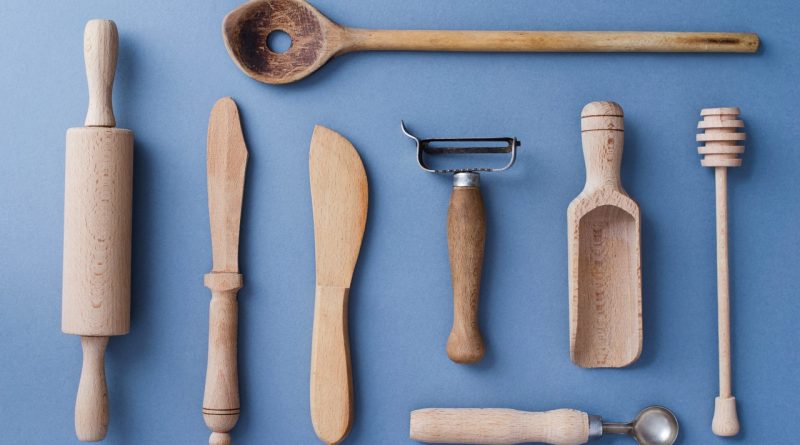Zwilling’s Integration Of Artificial Intelligence In Design Prototyping
===
In an era where technology is reshaping industries, Zwilling is at the forefront of integrating artificial intelligence (AI) into its design prototyping processes. This approach not only enhances efficiency but also paves the way for innovative kitchenware that caters to evolving consumer needs. By leveraging AI, Zwilling is redefining how kitchen tools are conceptualized and manufactured, making significant strides in both functionality and design aesthetic.
The Role of AI in Enhancing Design Prototyping at Zwilling
Artificial intelligence plays a pivotal role in Zwilling’s design prototyping by analyzing vast amounts of data related to consumer preferences and market trends. This data-driven approach enables the company to create prototypes that resonate with the target audience. Machine learning algorithms assess previous designs, customer feedback, and industry standards, allowing Zwilling to anticipate what features will appeal to consumers in future products.
Moreover, AI assists in the rapid iteration of prototypes. Traditional prototyping can be time-consuming, requiring multiple rounds of design and testing. With AI, Zwilling can simulate various design options and predict their performance before physical prototypes are created. This not only cuts down on development time but also reduces material waste, aligning with sustainable practices that are increasingly important in today’s manufacturing landscape.
Finally, AI supports collaborative efforts among different departments within Zwilling. By providing a centralized platform for data and insights, teams from design, engineering, and marketing can work together more effectively. This integration fosters a culture of innovation where insights from various fields enhance the overall design process, allowing Zwilling to produce cutting-edge kitchenware that meets comprehensive quality and performance standards.
Key Benefits of AI-Driven Design in Kitchenware Production
The integration of AI in kitchenware design offers numerous benefits, the most significant being improved accuracy and precision. With AI algorithms analyzing design parameters, Zwilling can create products that not only meet aesthetic qualities but also function flawlessly. This ensures that each piece of kitchenware not only looks good but performs well, enhancing the overall cooking experience for users.
Another critical advantage is the speed of product development. AI-driven tools can facilitate quicker design iterations, enabling Zwilling to bring products to market faster. In a competitive industry, being able to respond swiftly to trends and consumer demands is essential. This agility not only helps in maintaining relevance but also positions Zwilling as a leader in innovation within the kitchenware sector.
Furthermore, AI contributes to cost efficiency. By optimizing the design process and reducing the number of physical prototypes needed, Zwilling can save on material costs and labor. This financial efficiency allows the company to allocate resources to other areas, such as research and development, ultimately leading to a broader range of innovative products that meet diverse consumer needs.
How Zwilling Utilizes AI for Efficient Prototyping Processes
Zwilling employs AI in its prototyping process through advanced simulation software that replicates real-life usage scenarios. This software analyzes how a product will perform under various conditions, providing valuable insights into durability, usability, and ergonomics. By identifying potential issues early in the design phase, Zwilling can make informed decisions that enhance product quality before reaching the manufacturing stage.
Additionally, Zwilling utilizes AI-driven analytics to track consumer behavior and feedback in real-time. This data informs the design team about what features consumers prioritize, such as grip comfort, weight distribution, or ease of cleaning. By understanding these preferences, Zwilling can tailor its designs to meet customer expectations and improve overall satisfaction.
Moreover, Zwilling integrates AI into its supply chain management to ensure that the prototyping process aligns with production capabilities. By forecasting demand and optimizing inventory levels, the company can streamline its operations, reducing lead times and minimizing stockouts. This interconnected approach ensures that the design and production teams are synchronized, leading to a smoother transition from concept to market-ready products.
Future Trends: AI’s Impact on Kitchen Design Innovations
The future of kitchen design is likely to be heavily influenced by AI advancements, resulting in more personalized cooking experiences. As AI continues to evolve, Zwilling may implement smart technologies that adapt kitchenware to individual cooking styles and preferences. For example, utensils that adjust their grip based on user feedback could become commonplace, enhancing comfort and usability.
Additionally, as sustainable practices become more critical, AI can aid in developing eco-friendly materials and manufacturing processes. Zwilling is already exploring alternatives to traditional materials, and AI can help identify sustainable options that do not compromise quality or performance. By prioritizing sustainability, Zwilling can cater to environmentally conscious consumers while setting industry standards.
Lastly, the integration of AI with smart kitchen appliances will likely pave the way for an interconnected ecosystem that enhances culinary experiences. Imagine kitchenware that communicates with smart ovens or refrigerators, offering real-time feedback on cooking techniques or ingredient freshness. This level of connectivity will redefine how consumers interact with their kitchen tools, making cooking more intuitive and enjoyable.
===
Zwilling’s integration of artificial intelligence into design prototyping represents a significant leap forward in the kitchenware industry. By harnessing the power of AI, the company not only enhances its design processes but also aligns itself with modern consumer demands for efficiency, sustainability, and personalization. As these technologies continue to evolve, Zwilling stands poised to lead the charge in innovative kitchen solutions that resonate with food enthusiasts worldwide. The future of kitchen design is bright, and AI will undoubtedly play a central role in shaping it.
